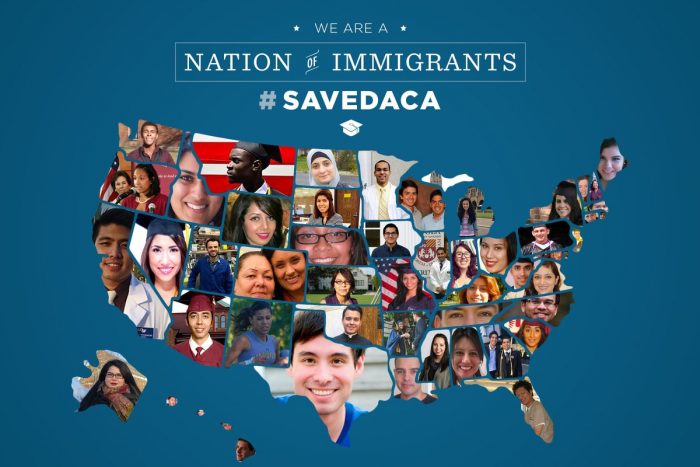By Anonymous


Every day since January 20, I knew that the president had the chance to end DACA because it was the easiest program to eliminate. But days and months went by and DACA was still standing—up until last September. I knew this day was going to come and I’ve prepared for it. My parents and I prepared which country to travel and live in for me to seek employment opportunities. We’ve prepared a safety net: a savings account with which I will use for plane tickets and finding a new place to live. But we have always been prepared to fight.
I am a Southeast Asian woman. I came to the United States with my parents on a visa when I was six years old and settled in Northern Virginia. We decided to come to the U.S. because my parents wanted better opportunities for me and America is known as the land of opportunities.
When I was in my birth country, I was told that I missed a lot of kindergarten because I was consistently ill, due to the weather and pollution. My parents realized that we needed to move to another country, for me to thrive socially and academically. So, they sacrificed everything and moved thousands of miles away.
Growing up in Northern Virginia was refreshing. I made new friends, I liked the schools I went to, and I was not consistently ill. I was in sports teams and played the violin and piano for a couple of years. I was able to be involved with multiple extracurriculars in middle school and high school. Going to school and getting an education in the United States was a privilege I was able to have.
Throughout growing up in the United States, I knew that I was different from the rest of my peers because of my immigration status. My parents always said to me that I could not do a lot of the things that my friends did, such as getting a permit, voting, and obtaining a job because we overstayed our visas. I knew of this when I was in middle school and my parents kept on reminding me all throughout my middle school and high school career, so I would not be caught off guard when I start applying for my license.
My parents also drilled into my head to not tell anyone of our immigration status for fear of deportation and any sort of backlash. This is still embedded into my brain today. However, I am much more active and vocal in advocating for immigrant rights the past few years than I was in high school.
In 2012, when former President Barack Obama introduced DACA, it changed the game for us immigrants. I was about 16, and I wanted to work to have my own finances and to be able to support myself. When I received my work permit, I started working in retail. I was delighted to work and to be able to experience what having pocket money was like because I never liked borrowing my parents’ money. I liked having a sense of independence because I was able to obtain jobs, have a license and drive a car.
I have now renewed my DACA three times and have had several job experiences in retail and several professional internship experiences. I was also able to pay in-state tuition, due to state laws in Virginia because of DACA and that has made my college experience a lot easier.
Ever since I have received DACA, I thrived. Having professional internship experiences to further my skill sets going into the workforce, built confidence in my abilities. I have always dreamed of giving back and providing for my family and being able to work will solidify that.
I am going to be graduating in May with a major in Communication and a minor in Global Affairs. I plan to work for a media company because I want to amplify marginalized voices like mine. However, for any of us to continue living our lives without fear of deportation, Congress needs to pass the Dream Act.
All our hard work that we have done in our communities, to build a better life for ourselves and our families, will end if Congress does not pass the Dream Act. We are your co-workers, friends, family, neighbors, and students.
We’ve built relationships, friendships, businesses to add to the growing economy, and a life in the United States. We are just like any other citizen, only without proper documentation. To make it “proper”, pass a solution. We know no other home.


